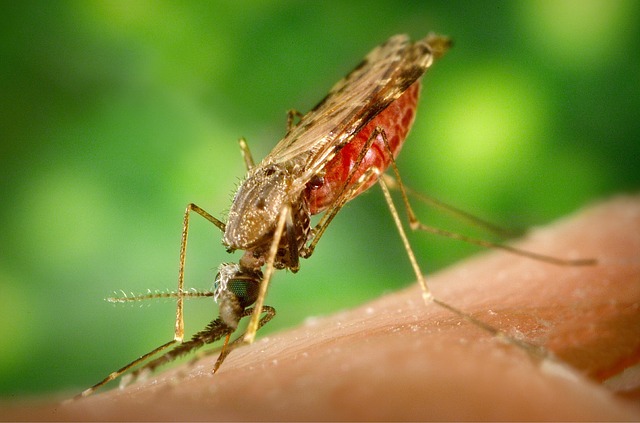Uganda Malaria and Vaccinations
What Every Traveler Needs to Know Before Stepping into the Pearl of Africa
A Journey into the Wild, Safely Guided
Uganda, fondly known as the Pearl of Africa, remains one of the most enthralling destinations on the continent. Its mist-draped mountains, sprawling savannahs, and tropical rainforests create an unmatched canvas of natural beauty. Whether it is the intimate gaze of a mountain gorilla in Bwindi or the thunderous spectacle of Murchison Falls, Uganda rewards travelers with experiences both rare and profound.
Yet, as with any journey into the heart of the tropics, one essential question lingers for every health-conscious traveler: how can I stay safe and healthy while exploring Uganda? While Uganda is welcoming and vibrant, it lies within a region where malaria and certain infectious diseases are prevalent. A well-prepared traveler is not only informed but also protected—physically and mentally—for what lies ahead.
Understanding the malaria risk, necessary vaccinations, and recommended preventive health measures becomes not just a practical decision but an act of respect for both the traveler’s body and the environment they enter. Travel health is not merely a checklist; it is the first step in making the most of every unforgettable moment in Uganda.
Understanding Malaria in Uganda
Malaria remains the most significant health concern for travelers to Uganda. As a mosquito-borne disease caused by the Plasmodium parasite, malaria is transmitted through the bite of an infected Anopheles mosquito, which is most active during dusk and nighttime hours.
Uganda, with its tropical climate and lush landscapes, provides ideal breeding conditions for mosquitoes. While the risk of transmission is present throughout the country, it varies slightly with elevation and geography. Lowland regions and areas near water bodies generally pose higher risks, while higher-altitude zones such as parts of Kabale and southwestern Uganda may have comparatively lower incidence rates.
The symptoms of malaria can be mild to severe, often starting with fever, chills, headaches, and muscle aches. In extreme cases, if not treated promptly, malaria can become life-threatening. For travelers unfamiliar with the symptoms, early detection and access to treatment are critical.
In order to prevent infection, a proactive approach is required. The use of antimalarial medication before, during, and after travel is highly recommended. Options such as atovaquone-proguanil, doxycycline, or mefloquine are commonly prescribed, each with its own dosage guidelines and suitability based on medical history.
Insect bite prevention must also be considered part of everyday travel behavior. The application of insect repellents containing DEET or picaridin, the use of long-sleeved clothing during peak biting times, and sleeping under insecticide-treated bed nets significantly reduce the risk of bites. Accommodations across Uganda, especially those designed for tourists, often provide netting and other protective measures to ensure restful nights without unwelcome guests.
Yellow Fever Vaccination: A Mandatory Requirement
Among the most important health requirements for entry into Uganda is the yellow fever vaccination. As a country located within the endemic zone for yellow fever—a viral hemorrhagic disease transmitted by mosquitoes—Uganda has instituted a mandatory vaccination policy for all incoming travelers aged nine months and above.
Travelers are required to present a valid Yellow Fever Vaccination Certificate upon arrival at Entebbe International Airport or any official land border. Without this proof, entry can be denied, or in some cases, vaccination at the point of entry may be enforced, often at the traveler’s expense and potential delay.
The yellow fever vaccine is administered in a single dose and provides lifelong protection for most individuals. It is advised to receive the vaccine at least 10 days prior to travel, allowing sufficient time for the body to build immunity. Adverse reactions are rare, though travelers with compromised immune systems or specific medical conditions should consult a travel health specialist before receiving it.
Additional Recommended Vaccinations for Uganda
Beyond yellow fever, there are several highly recommended vaccinations for those traveling to Uganda. These vaccines are not always mandatory but serve as protective measures against infections that may be unfamiliar or uncommon in travelers’ countries of origin.
Hepatitis A and B remain two of the most commonly advised vaccinations. Hepatitis A is transmitted through contaminated food or water and is of particular concern when eating in informal settings or consuming raw produce. Hepatitis B, a bloodborne virus, can be contracted through unprotected sex or medical procedures involving contaminated needles.
Typhoid fever, caused by Salmonella bacteria found in tainted food or water, is also prevalent in some regions of Uganda. Travelers who plan to explore rural areas or indulge in street food are especially encouraged to vaccinate against typhoid, either through an injectable or oral form.
Tetanus, diphtheria, and pertussis (Tdap) are usually included in routine childhood immunizations but should be updated with a booster if the last dose was received more than ten years ago. These bacterial infections are preventable but can be severe if contracted during an injury or close exposure to infected individuals.
For extended stays or visits involving close contact with local wildlife and remote areas, the rabies vaccine is sometimes advised. Rabies, although rare in travelers, is fatal if untreated, and immediate post-exposure treatment may not be easily accessible in certain rural zones. This vaccine is especially recommended for veterinary professionals, researchers, and travelers undertaking long treks in conservation zones.
In light of the global pandemic, COVID-19 vaccination and proof of immunization or recent testing may be requested by health authorities, although current regulations continue to evolve and should be verified closer to travel dates.
Preparing for a Healthy Stay
Health preparedness for a trip to Uganda must go beyond vaccinations. Travelers should assemble a personal travel health kit, including malaria medication, oral rehydration salts, antiseptics, insect repellent, sun protection, and basic pain relief. Prescription medications should be carried in their original packaging, along with a copy of the prescription.
Safe food and water practices will also contribute greatly to staying healthy. Bottled or filtered water should be used for drinking and brushing teeth, while hot, freshly cooked meals are generally safer than raw or undercooked dishes. Though Uganda’s culinary offerings are rich and diverse, food hygiene awareness remains an important travel companion.
Access to medical care is available in major cities like Kampala and Entebbe, where private clinics and hospitals offer competent services for visitors. However, remote areas may lack advanced facilities, which makes travel insurance with emergency evacuation coverage not just advisable but essential.
Health Etiquette and Cultural Sensitivity
Traveling responsibly in Uganda includes respecting local health protocols, particularly in post-COVID-19 contexts. Hand hygiene, appropriate distancing when necessary, and the use of face masks in crowded settings may still be expected, especially in urban centers and medical facilities.
Ugandans are renowned for their hospitality and warmth, and showing consideration for public health norms is a gesture of mutual respect. A healthy traveler contributes not only to their own well-being but also to the communities they encounter, enhancing the cultural and interpersonal experience of the journey.
Experience Uganda With Confidence Through WildHorn Africa
A safe and enjoyable trip to Uganda begins with planning and expert guidance. While navigating vaccinations, malaria prevention, and regional health protocols may seem daunting, these preparations ensure that your time in Uganda is spent exploring—not recovering.
With WildHorn Africa, travelers are assured of professional, medically informed planning and comprehensive support from arrival to departure. Their team provides guidance on entry health requirements, offers recommendations on local clinics and pharmacies, and integrates safety measures into every customized itinerary.
By partnering with WildHorn Africa, travelers gain not just access to Uganda’s premier wildlife and cultural destinations, but also peace of mind, knowing that every aspect of their health and comfort has been carefully considered.
Book your safari or wildlife adventure today with WildHorn Africa, and step confidently into the wild heart of East Africa—fully protected, expertly guided, and endlessly inspired.









